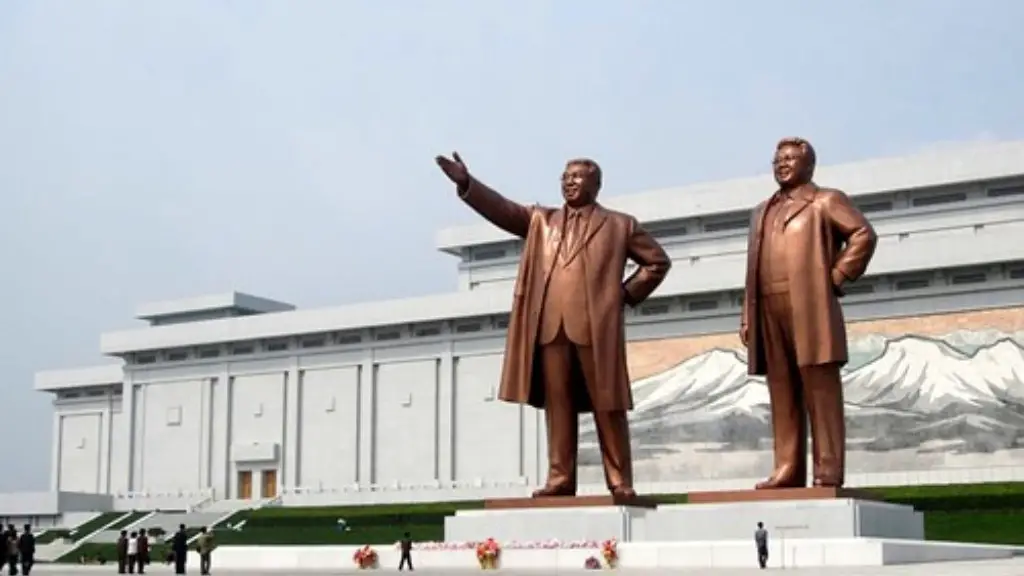Background
North and South Korea share a complicated history. The Korean peninsula was ruled by the same dynasty, the Joseon Kingdom, until the Japanese occupation of Korea in 1910. After the Japanese surrender at the end of World War II, the peninsula was divided into North and South Korea in 1945 and tensions between the two countries have remained high ever since. North and South Korea are home to two different political systems, and have very different approaches to their conflicts with each other. North Korea has adopted a policy of isolationism, while South Korea has sought to engage with the international community.
Political Systems
The political systems of North and South Korea differ significantly. North Korea is a communist state, ruled by the Kim family since its foundation in 1948. It is a highly authoritarian regime, known for its human rights abuses and lack of press freedom. South Korea is a multi-party democracy, with regular elections and a vibrant civil society. South Korea is also a key ally of the United States, and is a member of the United Nations.
Economy
North and South Korea have very different economic systems. North Korea has adopted a state-controlled economy, which has been heavily affected by UN sanctions. The economy is largely based on state-owned industries and agriculture. South Korea has adopted a capitalist economy, with a focus on major industries such as electronics, automobiles and shipbuilding. South Korea has become one of the leading economies in Asia, and is the world’s 12th largest economy.
Military Strength
North and South Korea have very different military capabilities. North Korea is estimated to have between 1.2 and 1.7 million active military personnel, and is thought to possess a variety of weapons of mass destruction. South Korea, on the other hand, has on 613,000 active military personnel, and its arsenal of weapons is primarily defensive.
Relations with Other Countries
North and South Korea have very different relationships with other countries. North Korea is an isolated nation that is hostile towards its neighbours and the international community. It does not have diplomatic ties with many countries and is subject to UN sanctions for its nuclear weapons program. South Korea, on the other hand, has a close relationship with the United States and is an active participant in a number of international organizations, including the UN and the G20.
Views on the American presence
North Korea and South Korea differ significantly in their attitudes toward the American presence on the Korean Peninsula. North Korea has a hostile attitude towards the United States, viewing them as an imperialist aggressor, while South Korea has a more welcoming attitude and is a strong ally of the United States.
Society and Culture
The societies of both North and South Korea differ significantly. North Korea is a tightly controlled society, with strict laws governing everyday life. South Korea, on the other hand, is a dynamic, modern society with a vibrant culture. South Korea has seen a recent surge in popular culture, such as K-pop and K-dramas, which have become popular around the world.
Reunification
North and South Korea are still officially at war, and have differing views on the possibility of reunification. North Korea has long called for a unified Korea, albeit under its authoritarian rule. South Korea has maintained a more moderate stance, advocating for peaceful reunification through dialogue.
Religion
North and South Korea have different attitudes towards religion. North Korea is an officially atheistic state, and religious practice is heavily discouraged. South Korea, on the other hand, is multi-religious and has a vibrant network of religious organizations.
Conclusion
The differences between North and South Korea are vast and complex. From their differing political systems and economic systems, to their attitudes towards religion and the United States, the two countries could not be more different. It remains to be seen whether these differences will be a source of tension or a means for eventual reconciliation.


